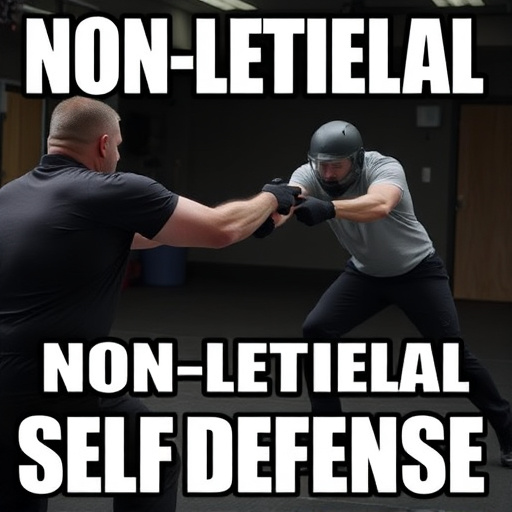Understanding state laws regarding civilian taser ownership is crucial in the US, where regulations vary widely. Key aspects include age restrictions, permit requirements, and safety training, with special attention to Pacemaker Interference With Stun Guns. Some states have stringent rules protecting individuals with heart conditions or implanted medical devices. These laws balance public safety with responsible taser ownership by addressing storage, use restrictions, and potential health risks from the device's electrical current. Familiarizing yourself with local legislation is essential for prospective owners to avoid legal issues and ensure compliance.
“Uncovering the legal landscape surrounding civilian taser ownership is crucial for ensuring safety and understanding your rights. This article navigates the intricate web of state laws, focusing on key regulations and potential risks like pacemaker interference with stun guns—a critical safety consideration.
We’ll explore the legal implications, requirements, and restrictions that govern citizen ownership, offering a comprehensive guide to help you understand and comply with these varying state-level rules.”
- Understanding State Laws Regulating Civilian Taser Ownership
- Pacemaker Interference: A Critical Safety Consideration for Stun Guns
- Legal Implications and Requirements for Owning a Taser as a Citizen
Understanding State Laws Regulating Civilian Taser Ownership

Understanding State Laws Regulating Civilian Taser Ownership
In the United States, civilian taser ownership is subject to strict state regulations, which vary significantly from one state to another. These laws govern not only the purchase and possession of stun guns but also their use, storage, and accessibility. It’s crucial for individuals considering taser ownership to familiarize themselves with these state-specific rules, as non-compliance can result in severe penalties. Key aspects often addressed include age restrictions, permit requirements, waiting periods, and safety training. Some states have stringent restrictions on who can own a taser, while others take a more permissive approach. For instance, certain laws may mandate that potential owners undergo a background check or demonstrate a legitimate reason for possession.
Moreover, state regulations often touch upon safety measures, including requirements to store tasers in secure locations and prohibitions against certain types of use, such as those that could interfere with medical devices like pacemakers. Another critical consideration is the issue of Pacemaker Interference With Stun Guns. Tasers use electrical current to incapacitate targets, which can potentially affect individuals with heart conditions or implanted medical devices. States have responded by establishing guidelines and restrictions to mitigate these risks, ensuring public safety while allowing responsible taser ownership.
Pacemaker Interference: A Critical Safety Consideration for Stun Guns

The use of stun guns, or Tasers, has become a common tool for self-defense among civilians. However, one critical safety consideration often overlooked is pacemaker interference. Stun guns emit an electric current that can disrupt the normal functioning of electronic devices, including heart rhythm management devices like pacemakers. This interference can potentially lead to severe health risks for individuals with pacemakers who carry or are targeted by stun guns.
State laws vary regarding civilian ownership of stun guns, but many have specific guidelines to protect those with pacemakers or other medical devices. It’s essential for potential Taser owners to understand these regulations and the potential dangers before making a purchase. Knowing the risks associated with pacemaker interference can help ensure the safety of individuals who may come into contact with or own stun guns.
Legal Implications and Requirements for Owning a Taser as a Citizen

Owning a taser as a civilian comes with its own set of legal requirements and implications, especially considering the potential risks associated with their use. One significant concern is pacemaker interference with stun guns. Individuals with pacemakers must exercise extreme caution when handling tasers, as the electric current could potentially disrupt the device’s function, posing serious health risks. Several states have specific regulations in place to address this issue, often requiring users to consult with a medical professional and obtain written confirmation that their pacemaker is compatible with stun devices before purchasing one.
Beyond pacemaker considerations, state laws vary widely regarding civilian taser ownership. Some states permit unrestricted possession for self-defense, while others require permits or registration. Certain jurisdictions even have restrictions on the type of taser allowed, such as voltage limits, and may mandate safety training courses for buyers. It’s crucial for prospective taser owners to familiarize themselves with local legislation to ensure compliance and avoid legal repercussions.
Understanding state laws regarding civilian Taser ownership is crucial, especially considering the potential risks of pacemaker interference with stun guns. While many states allow certain individuals to own Tasers, strict regulations and requirements must be met. It’s essential for citizens interested in acquiring a Taser to thoroughly research and adhere to local legislation, ensuring both personal safety and compliance with the law. Moreover, being aware of potential health risks like pacemaker disruptions can help prevent serious harm, making informed ownership decisions vital.
